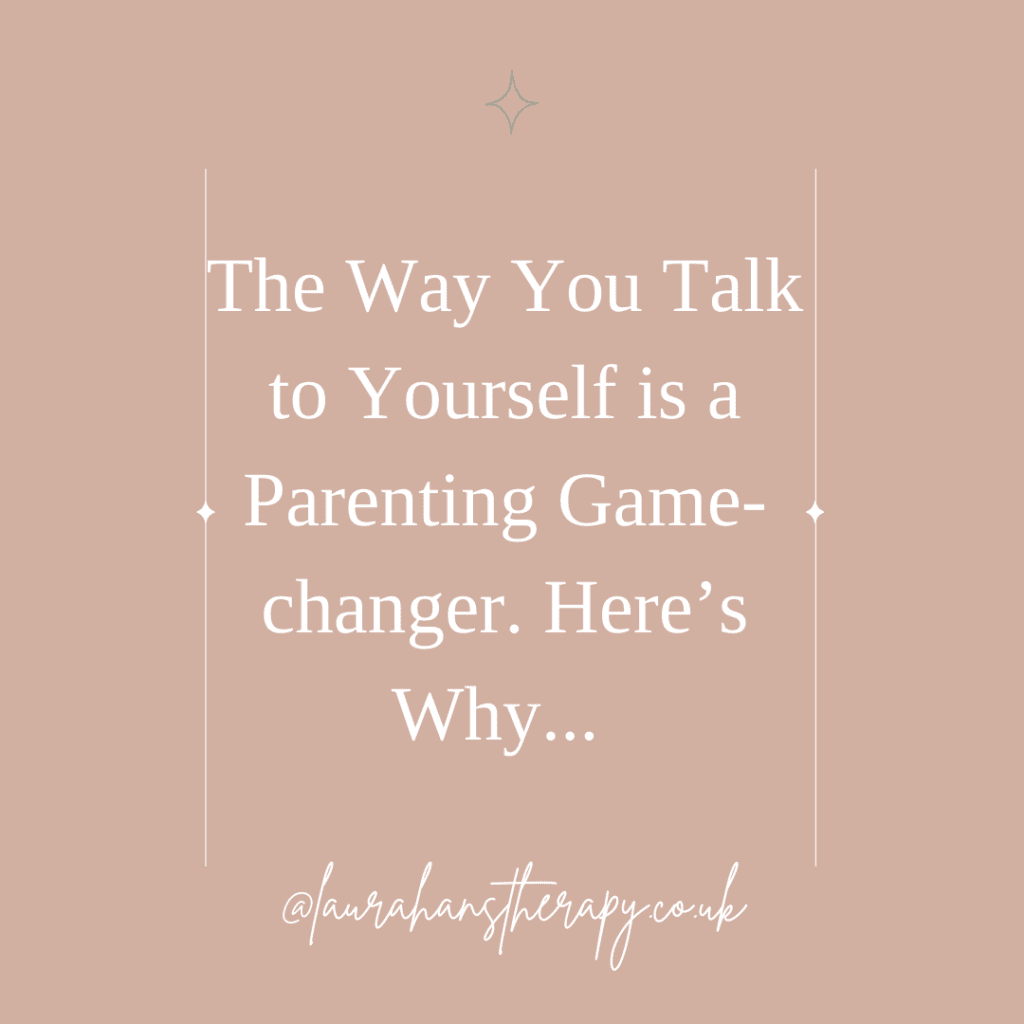How would you describe the way you talk to yourself? Specifically, what does the voice inside your head sound like as you go about your day as a mum? Does it tell you you’re doing a good job? Or is it more likely to berate and criticise you?
For example, what would it say if you snapped at your children or were forced to miss bedtime because you were delayed at work? Does it sound kind and understanding or harshly critical? If it’s the latter, I’d like to introduce you to a parenting gamechanger – a compassionate inner voice. But before we get to that, let’s focus on understanding the way you talk to yourself now.
Understanding the Way You Talk to Yourself
We all have an inner critic – an internal voice that is automatically negative and often characterised by blaming, shaming and harsh judgement. It is never kind or understanding and it always thinks the worst of you.
For some, their inner critic is quiet and relatively easy to manage. For others, it is dominant and loud, showing up frequently and impacting their everyday life. Read Understanding Your Critical Voice to learn more.
Your inner critic stems from messages about yourself and how you should behave that you learned in early life and internalised. These messages may have come from parents or caregivers, family members, teachers or people you spent lots of time with.
In therapy, we look at your inner critic and where it may have come from. We also explore the messages it’s sending you and the impact of these on your mental health, your daily life and your relationships.
How Your Inner Critic Affects Your Parenting
Your inner critic may be quite harsh, blaming and shaming you as an individual. It might be more demanding, placing pressure on you to be and do better. Your inner critic can also make you feel guilty for putting yourself first and failing to prioritise other people’s needs. Or it might do a combination of all these things.
Let’s look at these examples in relation to motherhood…
- If your inner critic is a harsh bully, making you feel like a bad mum or a failure, this can cause you to feel sad and low or even anxious and hopeless.
- If your inner critic is very demanding, placing pressure on you to be a better mum or spend more time with your children, you might feel stressed, overwhelmed and anxious.
- If your inner critic believes other people’s needs and feelings are always more important than your own, you might feel guilty if you’re unable to put other people first.
Experiencing any of these feelings can make your motherhood journey even harder to navigate than it already is. If your inner critic is being triggered frequently, this will be impacting your emotional wellbeing too.
How to Transform the Way You Talk to Yourself
The best way to drown out your inner critic is by developing a kind, gentle, compassionate inner voice. This voice is nurturing and caring. It’s your ever-present cheerleader who wants to see you do well. It cares about your needs and your feelings, and it wants you to know you matter just as much as everyone else, including your baby. I’d encourage you to read How Self-Compassion Can Help You Parent to find out more.
Instead of shaming and criticising, a compassionate inner voice gives you the ability to lean into the difficult moments of motherhood and feel motivated to support and nurture yourself. This can alleviate suffering and reduce the intensity of feelings of anxiety, depression, stress and overwhelm. You can see examples of this in action in 3 Things You Shouldn’t Feel Guilty About as a New Mum.
Remember, self-compassion is like a muscle. The more you exercise it, the more it will grow, making it easier to lean into suffering with gentleness, kindness and support. Because of this, the critical part of you will become smaller and less powerful.
Learning to Love Yourself
I created my free Learning to Love Yourself guide for anyone struggling with self-compassion. Self-compassion takes practice, but this resource is designed to get you started. Over time, you’ll learn and develop a compassionate inner voice that is kinder and gentler than the way you talk to yourself now.
By signing up, you’ll also become part of my community, meaning you’ll be sent regular emails packed with valuable information and tips on managing your emotional wellbeing.
Download your free guide here >>> Learning to Love Yourself
Get the Help You Need
If you’re struggling with your motherhood journey for any reason and it’s affecting your mental health, I can help. Reach out for the support you need by booking a consultation here. I also share lots of resources and encouragement via Instagram.
